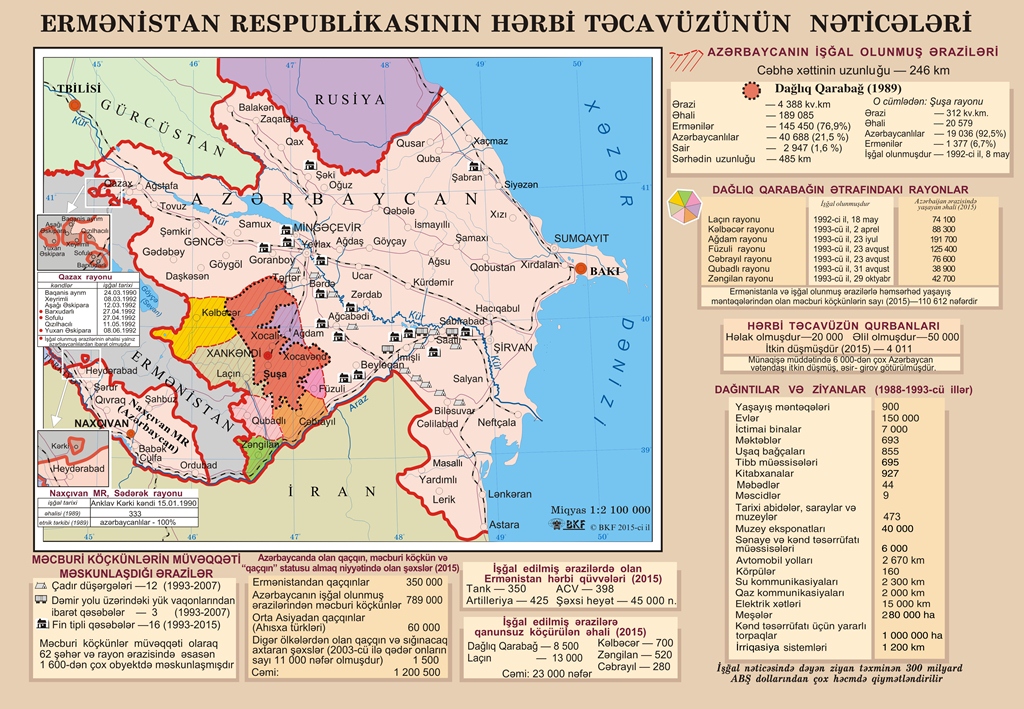The Project of “Open Municipal Infrastructure Program II”
A Loan Agreement between the Government of the Republic of Azerbaijan and KfW Bank of Germany was signed on September 25, 2006 within the frame of “Open Municipal Infrastructure Program II” intended the reconstruction of water supply and sewerage systems in the cities Ganja and Shaki. Grant Agreement between the Republic of Azerbaijan and the Government of Swiss Confederation was signed on September 25, 2006 for the provision of financial aid on “Open Municipal Infrastructure Program I and II” for employment of consulting services and financing a part of reconstruction of Shaki city’s water supply and sewerage system. In order to finance the 2nd and 3rd stages of the project, the Government of the Republic of Azerbaijan and the German KfW Bank signed a Loan Agreement in the amount of 100 million Euros and a Financing Agreement in the amount of 2 million Euros on December 20, 2012.
In the city of Shaki
The project of "Reconstruction of drinking water supply and sewerage systems in Sheki city" is estimated to improve 79000 residents’ drinking water and sanitation services in Sheki city considering perspective development by 2035.
The project of "Reconstruction of drinking water supply and sewerage systems in Sheki" is being implemented in stages.
Work under the first phase of the project was launched in 2010. To provide Sheki with drinking water, Kish water source was selected as a source of water. Kish Water Transmission Facility, 2,9 km of transmission main from the water source to water tank complex, 2 water reservoirs with total capacity of 2,000 cubic meters, chlorination unit were constructed at this stage.
Work under the second phase of the project was started in 2012. At this stage, three water reservoirs with a total capacity of 9,000 cubic meters were constructed, repair works were carried out at existing water reservoir with a capacity of 1,000 cubic meters, a 12.7 km-long transmission main was laid.
Within the third phase, which was launched in 2016, two water reservoirs with an overall capacity of 1,500 cubic meters and inter-reservoir water line,153 km of drinking water network, 107 km of sewerage network and 14.7 km of sewage collector were built. Subscribers were merged to the newly built network and 5890 meters were installed.
In general the construction of 314 km of drinking water designed and 294 km of sewer lines were intended to be built in Sheki.
At the next stage, it is planned to construct a wastewater treatment plant at 8,000 cubic meters per day for the purpose of removing wastewater from the initial stage.
In the city of Ganja
The project of "Reconstruction of drinking water supply and sewerage systems in Ganja city" covers Ganja city is designed to improve 450000 residents’ water supply and sanitation services by 2035, with perspective development.
Implementation of the project was started in September, 2011. Goygol, Gizilgaja sources and Shamkirchay reservoirs were selected to provide Ganja with drinking water. A new drainage system with a capacity of 200 liters per second was launched at the Goygol water source, water reservoir with a capacity of 4,000 cubic meters was built in Ganja and a 24.3 km-long transmission main was laid from the source to water tank.
Restoration and reconstruction work was carried out at the Gyzylgaya water source, 3 water reservoirs with a total capacity of 12,000 cubic meters and 6,9 km inter-reservoir and 4 km of transmission mains were constructed.
Most of drinking water needs in Ganja will be provided through the Shamkirchay water reservoir. A water treatment plant is constructed near the reservoir with a capacity of 140,000 cubic meters a day. 27.5 km of Shamkirchay-Ganja transmission main was built to provide water to the city from the water treatment facility.Openin of the Shemkirchay water treatment plant was held with the President Ilham Aliyev’s participation on March 3, 2020.
Taking into account the size of the city of Ganja, the work on reconstruction of drinking water supply and sewage systems is being carried out gradually. In total the construction of 855 km of drinking water network and 813 km sewerage network are planned to be built in Ganja. So far, 40 per cent of the networks have been constructed. Wastewater to be generated in Ganja will be treated and removed from the treatment plant with capacity of 110 000 cubic meters per day that will be built in the Samukh region in the future
The project envisages the supply of drinking water to Murovdagh settlement, Hajimelik and Mollajalilli villages of Goygol region.






